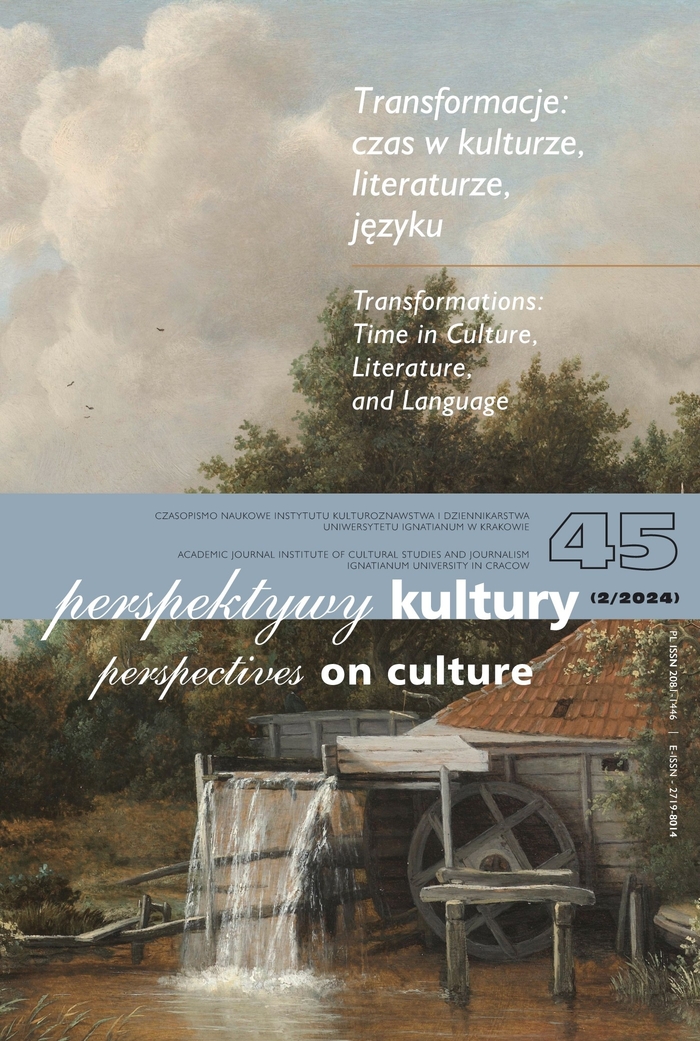Zeroculturality
A New Phenomenon in the Digital Space. Genesis, Characteristics, Consequences
Abstract
This article explores a recently discovered phenomenon in the digital landscape, labeled as “zeroculturality.” Unveiled through the author’s recent research in the realms of politics, culture, and communication, zeroculturality represents a transformative shift where cultural boundaries are not only spontaneously vanishing but are also intentionally obliterated. Individuals embodying zeroculturality consciously reject conventional cultural norms while preserving specific values, adapting their identity to synchronize with the dynamic demands of time and place. Essentially, these individuals may discard certain cultural behaviors while retaining the fundamental values associated with them. While not yet pervasive, zeroculturality merits significant consideration, particularly for entities striving to effectively communicate, manage relationships, and disseminate information. Traditional approaches in persuasive communication, grounded in demographics, psychosocial factors, or values, may be losing efficacy. The author’s research on zeroculturality aims to have a practical impact by offering insights that can guide effective communication, business strategies, and political decision-making in the digital age. The article provides a nuanced understanding of how individuals embracing zeroculturality navigate cultural boundaries, offering practical solutions for communicators to engage effectively with this audience. In the business sphere, the research seeks to inform marketers on tailoring strategies to the unique purchasing behaviors of those embodying zeroculturality. Additionally, the author hopes policymakers will leverage these insights to make informed decisions on societal values in the face of evolving cultural norms. Ultimately, the research aims to bridge the gap between academic understanding and practical application, empowering professionals across various sectors to navigate the challenges posed by zeroculturality in the digital era.
References
Archivio storico La Stampa. Sourced from: https://archive.org/details/la-stampa-newspaper (accessed: 24.11.2023).
Digital 2023 - Global Overwiew Report. Sourced from: https://datareportal.com/reports/digital-2023-global-overview-report (accessed: 12.03.2023).
Everhart Amy J., Predicting the Effect of Italy's Long-Awaited Rape Law Reform on “The Land of Machismo”, 31 “Vanderbilt Law Review” 671 (2021).
Sourced from: https://scholarship.law.vanderbilt.edu/vjtl/vol31/iss3/2 (accessed: 21.11.2023).
Franca Viola, la ragazza che con il suo No cambierà per sempre il nostro destino. Sourced from: https://www.primapaginamazara.it/franca-viola-la-ragazza-che-con-il-suo-no-cambiera-per-sempre-il-nostro-destino (accessed: 12.11.2023).
Garlicki L., Zubik M. (red.), Konstytucja Rzeczypospolitej Polskiej. Komentarz, t. I, Wydawnictwo Sejmowe, Warszawa 2016.
Głuszyńska I, Mach Z. (red.), Threats to Multiculturalism, Wyższa Szkoła Administracji, Bielsko-Biała 2011.
Grzechynka A., Wielokulturowość, zerokulturowość czy cyberkulturowość? Wpływ mediów społecznościowych na współczesne rozumienie kultury, Wydawnictwo Naukowe Uniwersytetu Ignatianum w Krakowie, Kraków 2023.
Kulju T., Glory and the Goat: The Ethics of Buzkashi, Afghanistan’s Favorite Game, “Rhētorikós” of Fordham University, 2020. Sourced from: https://rhetorikos.blog.fordham.edu/?p=1362 (accessed: 24.11.2023).
Kusio U., Transkulturowość, in: Wielokulturowość, red. B. Szlachta, Wydawnictwo Naukowe Akademii Ignatianum w Krakowie, Kraków 2022, tom VI serii „Słowniki społeczne”, red. W. Pasierbek, B. Szlachta.
Mach Z., Collective Memory and the Construction of Identity, in: Threats to Multiculturalism, red. I. Głuszyńska, Z. Mach, Wyższa Szkoła Administracji, Bielsko-Biała 2011.
Rybicki J., Kokburu znaczy szary wilk. Sourced from: https://peron4.pl/buzkaszi-kirgistan-kokburu-znaczy-szary-wilk/ (accessed: 20.11.2023).
Sarnecki P., Uwagi do art. 5 Konstytucji, in: L. Garlicki, M. Zubik (red.), Konstytucja Rzeczypospolitej Polskiej. Komentarz, t. I, Wydawnictwo Sejmowe, Warszawa 2016.
Szlachta B. (red.), Wielokulturowość, Wydawnictwo Naukowe Akademii Ignatianum w Krakowie, Kraków 2022.
Quilty A., Bloodsport From cockfighting to buzkashi, Afghanistan’s pastimes are as brutal as the country’s history, “Foreign Policy”. Sourced from: https://foreignpolicy.com/2015/06/19/bloodsport-afghanistan-taliban-fighting-war/ (accessed: 20.11.2023).
Copyright (c) 2024 Perspectives on Culture

This work is licensed under a Creative Commons Attribution-NoDerivatives 4.0 International License.
Autor, zgłaszając swój artykuł, wyraża zgodę na korzystanie przez Wydawnictwo Uniwersystet Ignatianum z utworu na następujących polach eksploatacji:
- utrwalania utworu w formie papierowej, a także na nośniku cyfrowym lub magnetycznym;
- zwielokrotnienia utworu dowolną techniką, bez ograniczenia ilości wydań i liczby egzemplarzy;
- rozpowszechniania utworu i jego zwielokrotnionych egzemplarzy na jakimkolwiek nośniku, w tym wprowadzenia do obrotu, sprzedaży, użyczenia, najmu;
- wprowadzenia utworu do pamięci komputera;
- rozpowszechniania utworu w sieciach informatycznych, w tym w sieci Internet;
- publicznego wykonania, wystawienia, wyświetlenia, odtworzenia oraz nadawania i reemitowania, a także publicznego udostępniania utworu w taki sposób, aby każdy mógł mieć do niego dostęp w miejscu i czasie przez siebie wybranym.
Wydawca zobowiązuje się szanować osobiste prawa autorskie do utworu.





